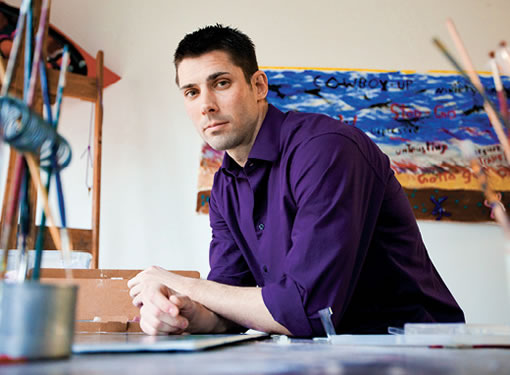Maya Angelou said, "I did then what I knew how to do. Now that I know better, I do better."
This could well sum up the experience of the more than 100 students enrolled in the Rollins School of Public Health certificate program in the Socio-Contextual Determinants of Health, led by behavioral scientist Hannah Cooper. They enter as passionate students, filled with a desire to aid communities by advancing social justice and eradicating health disparities, but thanks to the certificate program, they leave Emory better equipped to do so.
"During my last deployment to Afghanistan, nation building and stability operations became priorities for the International Security Assistance Forces (ISAF)," recalls second-year student Tim Puetz. "ISAF would build a road between two villages. This increased security, commerce, and access to health care. Villages would begin to change. Men had jobs. Children went back to school. Women gained social status. This is the [military] concept of 'winning hearts and minds.' Little did I know I was living public health."
Puetz served as an officer in the U.S. Army for almost eight years, first in the Medical Service Corps as a laboratory science officer conducting environmental medicine research and then in the Infantry doing long-range reconnaissance during a combat tour. Following his service in Afghanistan, Puetz enrolled in the Master of Public Health program under the G.I. Bill.
"A lot of people think soldiers fight like in the movies, but military service is very much a public health project," says Puetz. "In my first few days at Rollins, I was lucky enough to hear Dr. Cooper describe how policies and laws that you might not see affect health, and right there I jumped into the program."
Now in its second year, the Socio-Contextual Determinants of Health certificate program builds students' abilities to understand the policies and factors that may affect a population's health and how to intervene to affect change.
"People scratch their heads when they hear the term 'socio-contextual determinants of health.' It is an abstract concept, but Dr. Cooper can ground that idea, and her passion rubs off on students," says Puetz, who also holds a doctorate in biopsychology. "We look at the built environment — the structural — the social environment — people's interactions and social network — and policies that trickle down to affect individuals' health. We take this into other classes and the world around us to see how the larger decisions we make can impact health."
While requisite community work is a longer-term goal of the program, requirements currently include completion of selected classes, participation in colloquia and journal club, and a thesis or capstone project. Topics covered by guest lecturers so far include "How house construction isolates and endangers people — and what we can do about it" and "A socio-psychobiological approach to racial disparities in cardiovascular health."
"You may read about welfare policy in class, but working in the community allows you to see how that policy plays out," says Cooper. "You can learn in class, but in the community you can draw your own conclusions, and that is vital."

